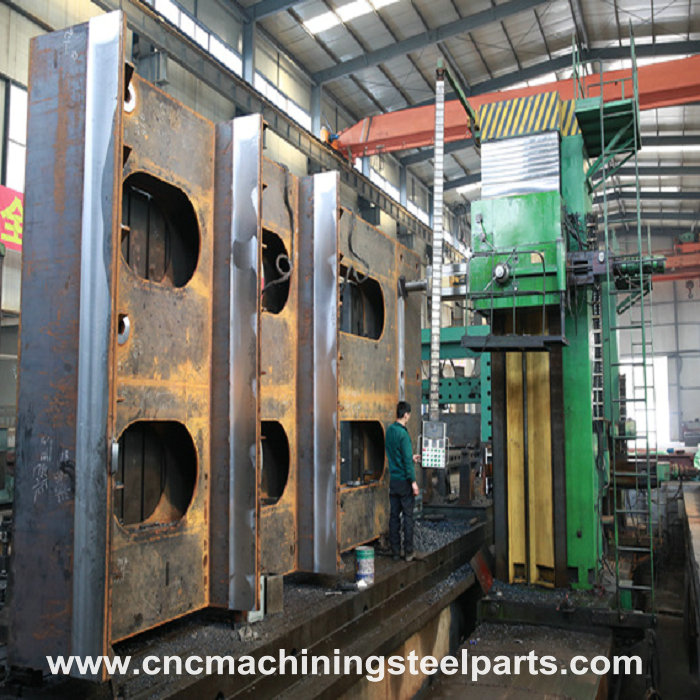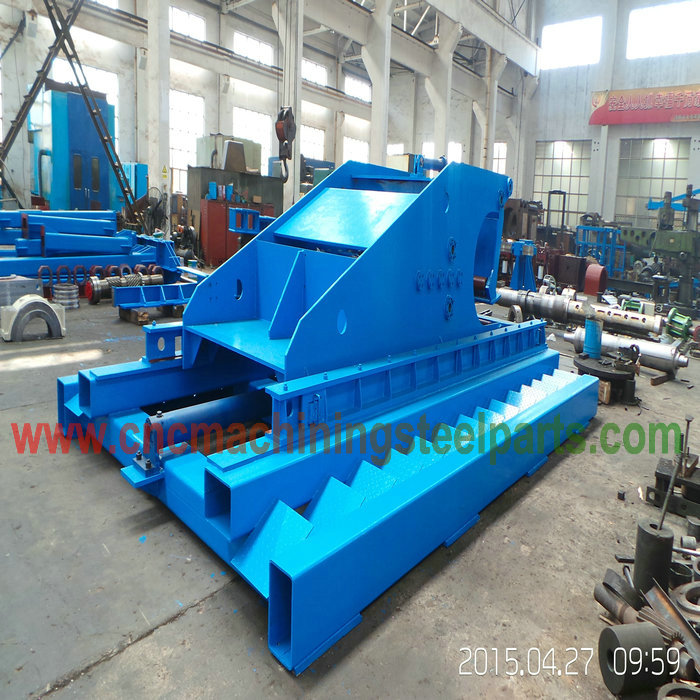Description
Structural Steel Fabrication Be Welded Machined Mechanical Fabrication Produced By JinRuiDa Company Refer To The Steel Structural Composite Members Which Can Bear And Transmit Loads By Cold Bending Or Welding Of Steel Plates, Angle Steels, Channel Steels, I-Beam Steels, Welded Or Hot Rolled H-Section Steels.
Advantages Of JinRuiDa
It Has Comprehensive Advantages Such As Light Weight, Factory Manufacturing, Fast Installation, Short Construction Period, Good Seismic Performance, Fast Investment Recovery And Less Environmental Pollution.
Compared With Reinforced Concrete Structure, It Has Unique Advantages In Three Aspects: High, Large And Light. In The Global Scope, Especially In Developed Countries And Regions, Steel Members Have Been Reasonably And Widely Used In The Field Of Construction Engineering.
High Bearing Capacity
The Greater The External Force, The Greater The Deformation Of Steel Components. However, When The Applied Force Is Too Large, The Steel Members Will Break Or Have Serious And Significant Plastic Deformation, Which Will Affect The Normal Work Of The Engineering Structure.
In Order To Ensure The Normal Work Of Engineering Materials And Structures Under Load, It Is Required That Each Steel Member Should Have Sufficient Load-Bearing Capacity, Also Known As Load-Bearing Capacity. The Bearing Capacity Is Mainly Measured By The Sufficient Strength, Stiffness And Stability Of Steel Members.
High Strength
Strength Refers To The Ability Of Steel Members To Resist Failure (Fracture Or Permanent Deformation). That Is To Say, Under The Action Of Load, No Yield Failure Or Fracture Failure Occurs, And The Ability To Ensure Safe And Reliable Operation Is Guaranteed. Strength Is The Basic Requirement That All Bearing Components Must Meet, Therefore, It Is Also The Focus Of Learning.
Strong Stiffness
Stiffness Refers To The Ability Of Steel Members To Resist Deformation. If The Steel Member Is Subjected To Excessive Deformation, It Will Not Work Normally Even If It Has Not Been Destroyed. Therefore, Steel Members Must Have Sufficient Stiffness, That Is, No Stiffness Failure Is Allowed. Stiffness Problems Have Different Requirements For Different Types Of Components, And Relevant Standards And Specifications Should Be Consulted When Applied.
Excellent Stability
Stability Refers To The Ability Of Structural Steel Fabrication To Maintain Their Original Equilibrium Form (State) Under External Forces.
Loss Of Stability Is The Phenomenon That When The Pressure Increases To a Certain Extent, Steel Members Suddenly Change The Original Equilibrium Form, Referred To As Instability.
Some Thin-Walled Members Under Compression May Also Suddenly Change The Original Equilibrium Form And Lose Stability. Therefore, These Steel Members Should Be Required To Have The Ability To Maintain Their Original Equilibrium Form, That Is, To Have Enough Stability To Ensure That They Do Not Lose Stability And Destroy Under The Prescribed Operating Conditions.
Pressure Bar Instability Usually Occurs Suddenly And Destructively, So It Is Necessary To Make The Compressed Bar Have Enough Stability.
In Summary, In Order To Ensure The Safe And Reliable Operation Of Structural Steel Fabrication, Our Company Must Have Sufficient Bearing Capacity, That Is, Sufficient Strength, Stiffness And Stability, Which Are The Three Basic Requirements To Ensure The Safe Work Of Components.





